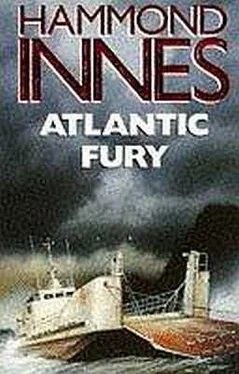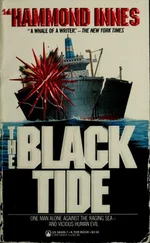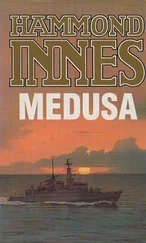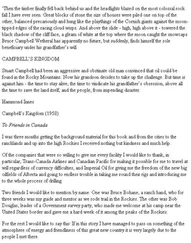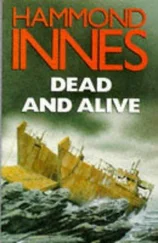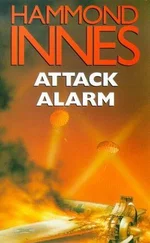Hammond Innes - Atlantic Fury
Здесь есть возможность читать онлайн «Hammond Innes - Atlantic Fury» весь текст электронной книги совершенно бесплатно (целиком полную версию без сокращений). В некоторых случаях можно слушать аудио, скачать через торрент в формате fb2 и присутствует краткое содержание. Жанр: Морские приключения, на английском языке. Описание произведения, (предисловие) а так же отзывы посетителей доступны на портале библиотеки ЛибКат.
- Название:Atlantic Fury
- Автор:
- Жанр:
- Год:неизвестен
- ISBN:нет данных
- Рейтинг книги:3 / 5. Голосов: 1
-
Избранное:Добавить в избранное
- Отзывы:
-
Ваша оценка:
- 60
- 1
- 2
- 3
- 4
- 5
Atlantic Fury: краткое содержание, описание и аннотация
Предлагаем к чтению аннотацию, описание, краткое содержание или предисловие (зависит от того, что написал сам автор книги «Atlantic Fury»). Если вы не нашли необходимую информацию о книге — напишите в комментариях, мы постараемся отыскать её.
Atlantic Fury — читать онлайн бесплатно полную книгу (весь текст) целиком
Ниже представлен текст книги, разбитый по страницам. Система сохранения места последней прочитанной страницы, позволяет с удобством читать онлайн бесплатно книгу «Atlantic Fury», без необходимости каждый раз заново искать на чём Вы остановились. Поставьте закладку, и сможете в любой момент перейти на страницу, на которой закончили чтение.
Интервал:
Закладка:
There were eleven items on the agenda for that afternoon, all affecting the Royal Artillery. Laerg was sixth on the list. It came up for discussion about half past three and I understand the Director of Finance had all the costings ready to hand, reading them out in a flat monotone that was barely audible above the roar of Whitehall traffic. It was a long list and when he’d finished he put it back in his brief-case and faced the DRA. ‘I think you’ll agree,’ he said, ‘that the cost of maintaining the detachment on Laerg is quite disproportionate to the contribution it makes to our guided weapons tests.’ He then went on, I gather, to emphasise the point he wanted to make. ‘Your firing season finishes when?’
‘Some time in August,’ the DRA replied.
‘And it starts in May.’
‘In May — yes. But we begin the build-up in April.’
‘In other words, the station is dormant for at least seven months of the year. And during those seven months it requires a Detachment Commander, usually a Captain, a Medical Officer and two orderlies, cooks, drivers, a REME outfit, even seamen military, a total of anything from thirty to forty men. There are two LCT’s Mark VIII involved in ferrying supplies and …’
‘The tank landing craft don’t function in the winter.’
‘Quite so. But they are nevertheless committed to this operation and are merely withdrawn to Squadron Headquarters at Portsmouth for re-fit. They are replaced by an RASC trawler. Not so costly perhaps, but still pretty expensive. In addition, a helicopter is periodically required to deliver mail.’
Throughout this interchange the DRA explained to me that he was very much on the defensive. He knew the operation could not be justified on grounds of cost alone. ‘It’s the men,’ he said. ‘They feel cut off if they don’t get regular mail. In any case, we’ve already decided to dispense with the trawler this winter and rely on Army helicopters for mail and relief of personnel. An experiment recommended by Colonel Standing, the Range Commandant. We’ve yet to find out how it will work. Conditions for helicopter flying are not all that good, particularly after the end of October.’
‘That’s merely a matter of detail,’ the Director of Finance said. ‘I have been into all this very carefully. Correct me if I’m wrong, but as I understand it the only maintenance required on the really vital equipment, the radar, is that it should be run once a day, mainly to warm it up. One man’s work for a few hours each day. To keep him there you apparently require over thirty men…’
‘I’ve reported on this to the Secretary for War more than once,’ the DRA cut in. ‘The tracking station cost a lot to establish. It isn’t only the radar that has to be maintained. There’s the camp, the vehicles, the boats; to abandon Laerg for seven months in the year would result in rapid deterioration through gales and the salt in the atmosphere. Moreover, trawlermen use Shelter Bay in the winter — Norwegians, Belgians, French, Spanish, as well as Scots. There wouldn’t be much left of our installations if there were nobody there to guard them.’
At this point the Permanent Under-Secretary intervened. ‘I don’t think we need query the number of men involved or the necessity for maintaining the station throughout the year in present circumstances. Presumably this was all gone into at the time and agreed as unavoidable. What we have to decide now is whether or not Laerg has become redundant in view of this new equipment we’ve been offered. You’ve had a report on it, I believe. The results of the trials were very impressive, I thought.’
The DRA didn’t say anything. He was staring out of the window at the cloudless blue of the sky. From where he sat he looked across the pale stone outline of the Horseguards to the trees in St James’s Park. They were still in summer leaf. It had been a mild autumn and so fine were the yellow brush strokes of the early frosts that only a painter’s eye would have discerned the warning breath of winter in that green canvas. The DRA was not a painter. His hobby, he explained to me, was bird-watching and he was wishing he had been able to find time to visit Laerg during the nesting season. The room was hot and airless, full of smoke, and the sun slanted golden bars of light across the table.
‘Before we finally make up our minds, perhaps we should hear what Ordnance Board have to say about it.’ The Permanent Under-Secretary reached for the phone and asked for the Colonel who had conducted the trials to be sent in. The discussion that followed was technical, and as the equipment concerned was secret the DRA did not discuss it with me. He did, however, say that it was American equipment and that he had pointed out that it would be costly to install. To this the Permanent Undersecretary had replied, ‘But as they are using the range themselves they are offering it to us on a long-term credit basis.’ That, the DRA told me, was the decisive factor.
The matter was settled and what happened later stemmed from that moment, for the Permanent Under-Secretary was under considerable pressure. ‘I’d like to be able to report to the PM,’ he said, ‘that you’ll have your men and equipment off the island and the station closed down, say by the end of the month. Would that be possible?’
‘I suppose so. It depends on the weather.’
‘Naturally. But we’re in for a fine spell now. I heard the forecast this morning.’
‘Laerg is over six hundred miles north of here and it’s getting late in the season.’
‘All the more reason to hurry it.’
The DRA was not disposed to argue. He had held his appointment for less than six months, and anyway he was wondering how to handle the next item on the agenda, which was of far more importance to the Artillery than Laerg. ‘I’ve no doubt we’ll manage,’ he said and made a note on his pad to instruct his Brigadier General Staff.
The BGS, questioned by the President of the Court Martial about the DRA’s acceptance of that time limit, made the point that some such limit was essential in an operation of this kind. If the evacuation were not completed before the winter gales set in, there would be little likelihood of getting the men and equipment off that winter. Even a partial failure to complete it would necessitate the maintenance of the station probably until the spring, with all the attendant problems of supply aggravated by the fact that essential stores would be lacking. ‘Without a time limit,’ he said, ‘the operation would have lacked the necessary atmosphere of urgency.’
Unfortunately, all the items on the agenda could not be dealt with that afternoon and the conference was resumed again at ten the following morning. As a result, the Brigadier General Staff received his instructions about Laerg in the form of a hurriedly dictated memo that listed some half-dozen other items for his immediate attention.
The BGS was a keen yachtsman, and though he had never Billed in the Hebrides, he was able to appreciate better than most people in the War Office the difficulties that could arise in an evacuation involving landing craft operating across an open beach. With the weekend imminent he decided to shelve the matter until Monday when Brigadier Matthieson was due in London. He marked it in his diary for the morning of October 11, the final decision to be taken after discussion with the DRA. Meantime, he teleprinted Matthieson at Scottish Command ordering him to have a plan of operations prepared for the immediate withdrawal of all stores, equipment and personnel.
Having established that there was a delay of four vital days between the DRA’s original agreement to the principle of evacuation and the final decision to go ahead, I should perhaps add that only exceptional circumstances would have produced speedier action, and in this case the exceptional circumstances had not arisen. The pressure at this stage was from the Permanent Under-Secretary, not from the weather; a full two weeks was to elapse before that freak meteorological brew began to ferment in the sea areas Bailey, Hebrides and Faeroes. There was, in any case, a good deal of preliminary work to be done. In particular, the agreement of the RASC to the use of the landing craft had to be obtained and the plan itself worked out. This last the DRA, Scottish Command, brought with him to London so that once it was agreed it only needed an executive order to start the thing moving.
Читать дальшеИнтервал:
Закладка:
Похожие книги на «Atlantic Fury»
Представляем Вашему вниманию похожие книги на «Atlantic Fury» списком для выбора. Мы отобрали схожую по названию и смыслу литературу в надежде предоставить читателям больше вариантов отыскать новые, интересные, ещё непрочитанные произведения.
Обсуждение, отзывы о книге «Atlantic Fury» и просто собственные мнения читателей. Оставьте ваши комментарии, напишите, что Вы думаете о произведении, его смысле или главных героях. Укажите что конкретно понравилось, а что нет, и почему Вы так считаете.
